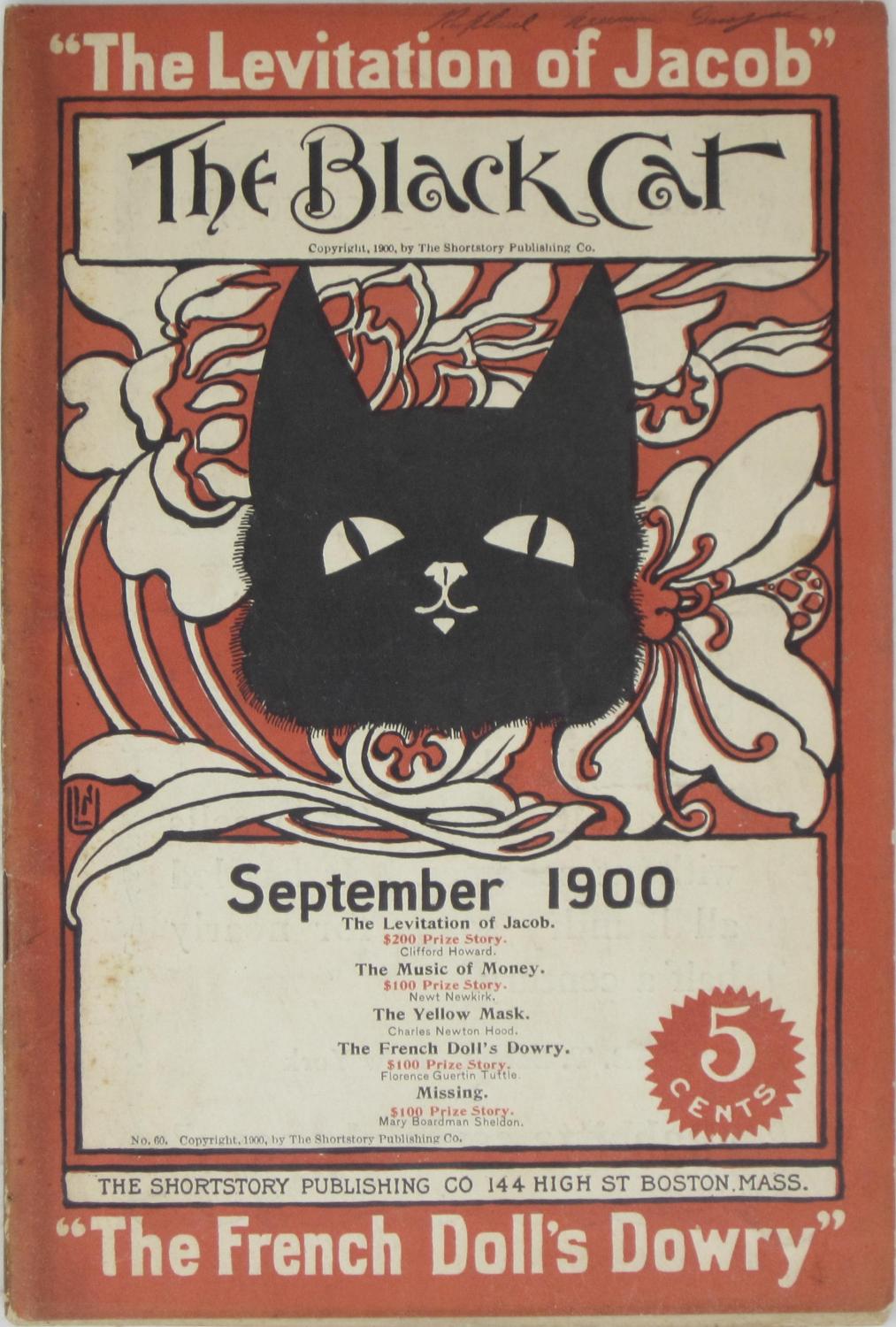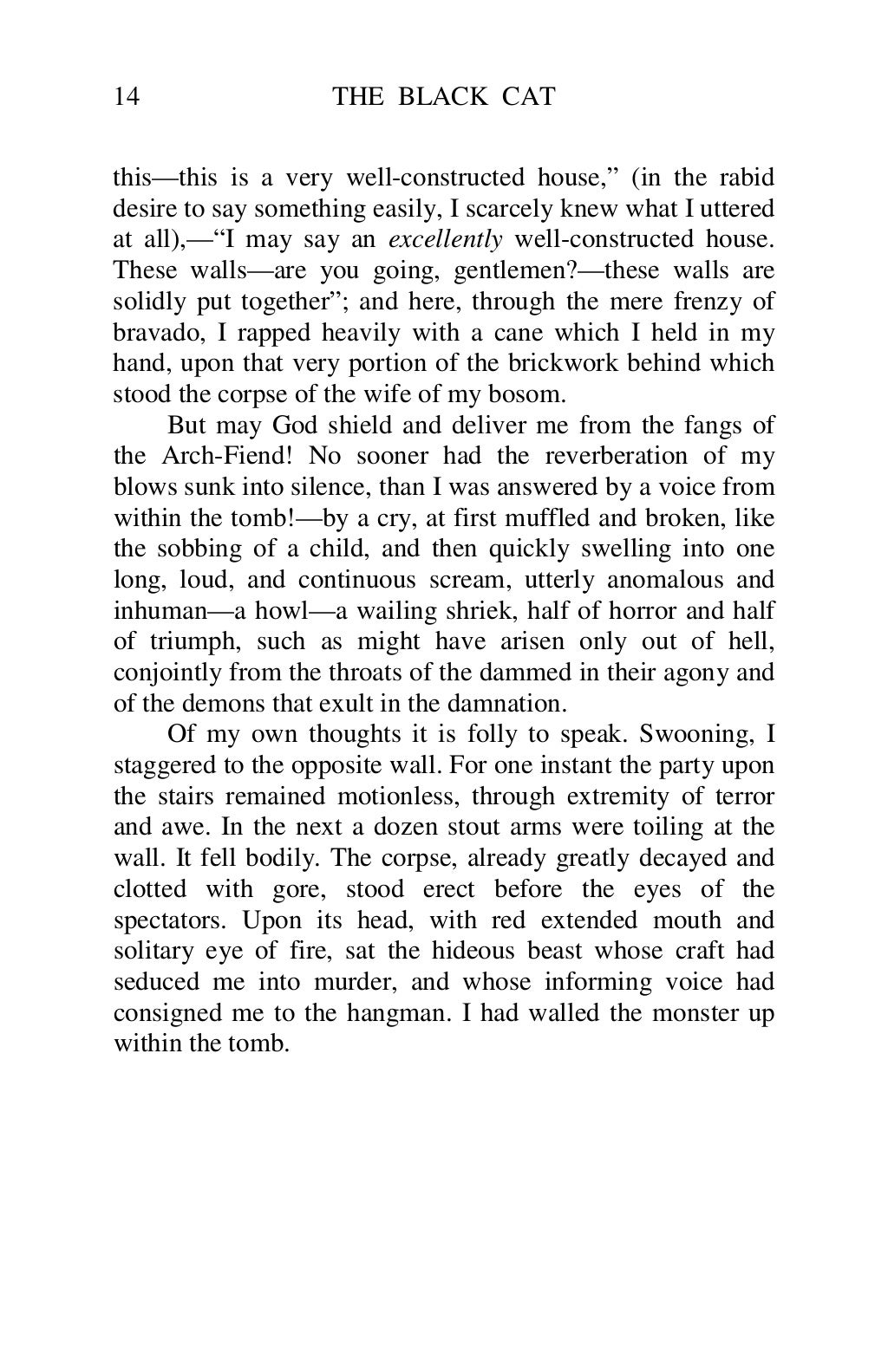

Peculiarly, on the single wall that did not fall in the fire is an image of a gigantic cat with a rope around its neck. The same night as the cat's death, the house is set on fire, and the narrator, his wife, and his servant barely escape, although he is left with little wealth. He describes it as a primitive impulse of perverseness that drives him to complete his attack on Pluto by hanging the cat from a tree, although he cries as he does the deed, aware that he has committed a deadly sin on an animal that once loved him.

The cat recovers, but it conspicuously avoids its owner, who is at first grieved and later annoyed and provoked. After sobering up the next morning, he feels a modicum of remorse but returns to drinking. In response, the narrator loses control and cuts one of Pluto's eyes out with a pen-knife. He remains less harsh to Pluto until one day, when he comes home drunk and, imagining that Pluto is avoiding him, he seizes the cat, which bites him on the hand in fear. In subsequent years, the narrator becomes increasingly moody and irritable due to alcoholism, and he begins to verbally abuse and threaten his wife as well as his pets. Although his wife often refers to the superstition that black cats are actually disguised witches, the narrator is particularly fond of the unusually intelligent cat. In their household they have a number of animals, including a large and beautiful black cat named Pluto.


He begins by describing his kind and humane younger self: he keeps many pets because animals such as dogs are so loving and faithful, and at a young age he marries a woman who also loves pets. Because he is due to die the next day, the narrator has decided to present the facts of a past event that has terrified and destroyed him, although he claims that he is not mad and hopes that someone else will be able to explain his story logically.


 0 kommentar(er)
0 kommentar(er)
